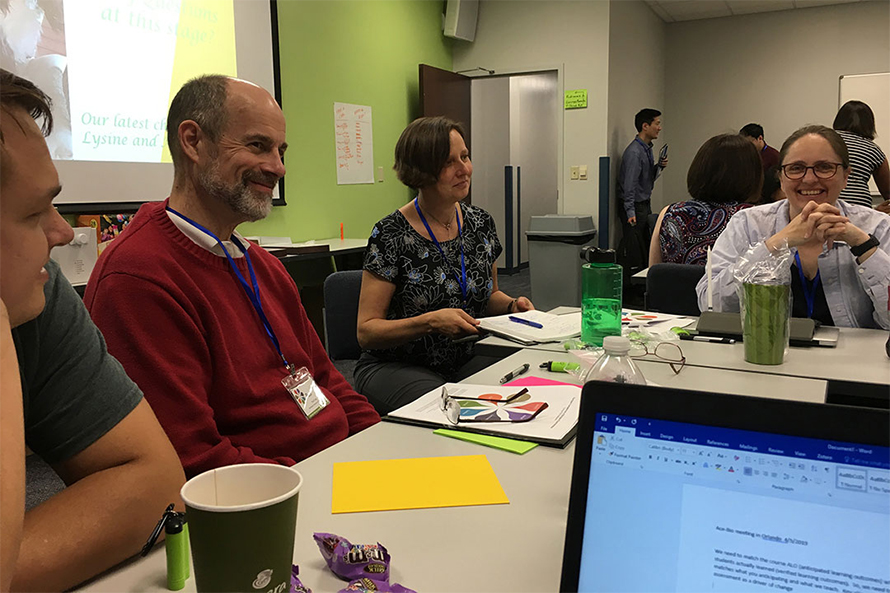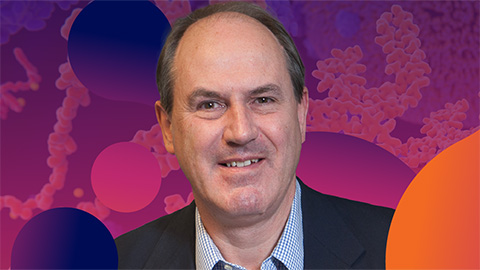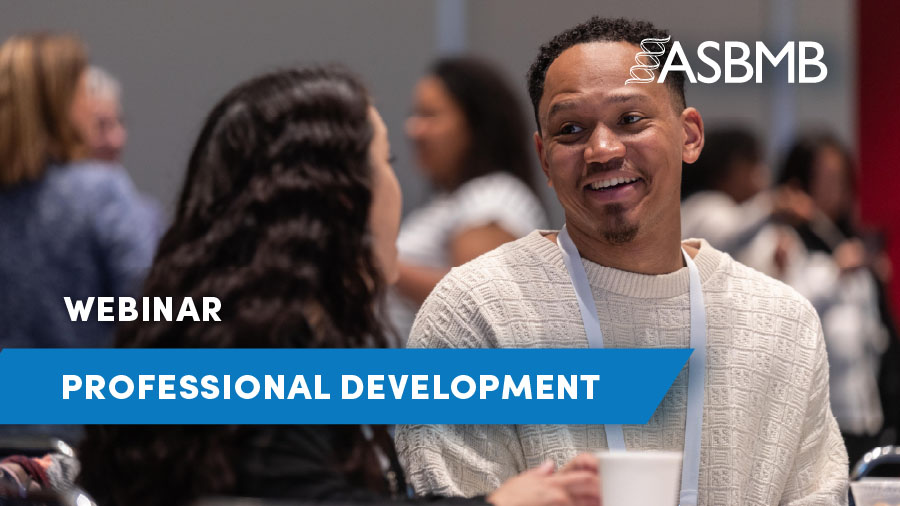Craig, O’Handley win grant to start research-based courses at 50 more campuses
The National Science Foundation is funding a project led by Rochester Institute of Technology scientists that will help students across the country benefit from hands-on learning experiences in biochemistry courses. The NSF awarded RIT more than $588,000 over the next five years to further implement and assess a course-based undergraduate research experience (CURE) based on the Biochemistry Authentic Science Inquiry Laboratory (BASIL) project led by RIT.
The BASIL CURE launched eight years ago based on the principle that students learn most effectively by doing rather than simply watching and listening. In the course, students use computational methods to try to predict the function of a protein based on its structure and then use wet laboratory methods to try to confirm their hypotheses.
“Research has shown that getting undergraduate students involved in research activities can greatly improve retention, completion rates, and other factors,” said Paul Craig, a professor in the School of Chemistry and Materials Science and principal investigator of the grant. “But it’s pretty clear that most campuses simply don’t have enough faculty or lab space to have every student have an individual research experience with a professor. The BASIL CURE is a lower-cost model that can be implemented with one professor and 12 to 15 students who are still doing research and getting many of the same benefits as the traditional one-on-one experiences.”

So far, the BASIL CURE has been fully implemented on 10 campuses across the country and been explored or some of the modules have been adopted at 25 others. One of the major goals of the new new NSF funding is to add 50 more campuses to the project over the next five years through a series of recruiting and training workshops and a mentoring program. Craig said the team will be intentional about diversifying the type of schools they engage with and that they intend for at least 30% of the new campuses to be historically Black colleges and universities, tribal colleges and other minority-serving institutions.
Craig, co-PI associate professor Suzanne O’Handley and collaborators from across the country will survey and interview participating faculty to identify barriers to adoption and other ways to improve upon the course. The project leaders anticipate providing support to participating faculty through a variety of training and workshops, including the Professional development for Emerging Education Researchers program led by researchers from RIT’s Center for Advancing STEM Teaching, Learning and Evaluation.
For more information about the project, go to the BASIL CURE website.
This article was first published by the Rochester Institute of Technology. Read the original.
Enjoy reading ASBMB Today?
Become a member to receive the print edition four times a year and the digital edition monthly.
Learn moreFeatured jobs
from the ASBMB career center
Get the latest from ASBMB Today
Enter your email address, and we’ll send you a weekly email with recent articles, interviews and more.
Latest in Careers
Careers highlights or most popular articles

From humble beginnings to unlocking lysosomal secrets
Monther Abu–Remaileh will receive the ASBMB’s 2026 Walter A. Shaw Young Investigator Award in Lipid Research at the ASBMB Annual Meeting, March 7-10 in Washington, D.C.

Chemistry meets biology to thwart parasites
Margaret Phillips will receive the Alice and C. C. Wang Award in Molecular Parasitology at the ASBMB Annual Meeting, March 7-10 in Washington, D.C.

Decoding how bacteria flip host’s molecular switches
Kim Orth will receive the Earl and Thressa Stadtman Distinguished Scientists Award at the ASBMB Annual Meeting, March 7–10, just outside of Washington, D.C.

Defining JNKs: Targets for drug discovery
Roger Davis will receive the Bert and Natalie Vallee Award in Biomedical Science at the ASBMB Annual Meeting, March 7–10, just outside of Washington, D.C.

Upcoming opportunities
No matter where you are in your career and what future path you aspire to, everyone needs leadership skills. Join ASBMB for practical strategies for building and practicing leadership skills.

Close out ASBMB 2026 with a bang
The closing reception of the 2026 ASBMB Annual Meeting will be held at the Torpedo Factory Art Center in Alexandra, Virginia.

